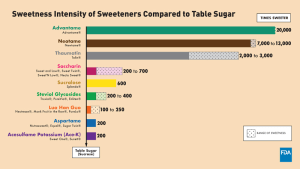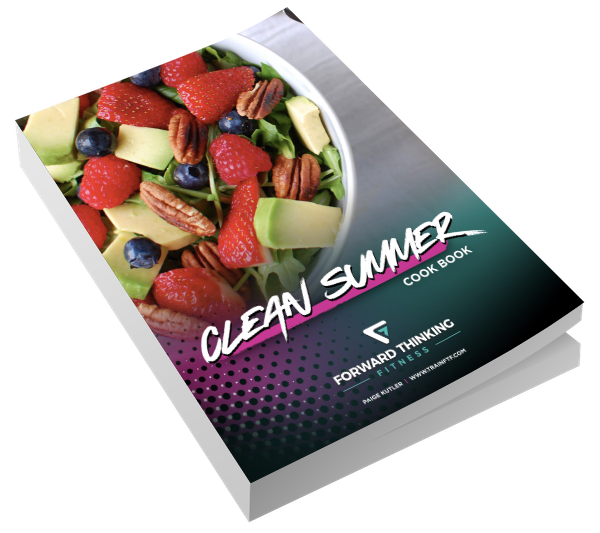
Sugar, spice, and everything nice!
It is common practice to limit sugar intake in your diet to lose weight and be healthier, but now there is buzz about artificial sweeteners being just as bad.
We can't win, can we?
Artificial sweeteners are sugar substitutes that provide the sweetness of sugar without the calories. Their molecular structure tricks your brain into interpreting sweetness when they bind with your tongue receptors.
Most artificial sweeteners cannot be metabolized by the body for energy (like they can for sugar), which can potentially lead to your brain craving foods with calories after not comprehending why the usual sweet taste didn't provide regular sustenance.
Regardless, all sugar substitutes are low-calorie or calorie-free. While this sounds appealing, is it healthier than the real thing?
Most people know of aspartame, an artificial sweetener found in many staples in the U.S., such as diet soda, gum, and those Equal packets. Although the FDA gave it the green light, numerous studies question its safety.
In 2023, the World Health Organization (WHO), the International Agency for Research on Cancer (IARC), and the Food and Agriculture Organization (FAO) Joint Expert Committee on Food Additives (JECFA) released a hazard and risk assessment of aspartame.
Their findings? They classified aspartame as "possibly carcinogenic to humans." This classification means there is "limited, but not convincing" evidence of an association between aspartame and cancer.
Even just the possibility of an artificial food ingredient causing cancer should be alarming. I'd recommend limiting any intake of aspartame to be on the safe side.
Other researched artificial sweeteners are associated with a higher risk of heart attack, stroke, and gastrointestinal problems as well.
While no definitive evidence links artificial sweeteners to various preventable chronic health conditions, there is enough proof to be wary of them. With science on our side, I recommend playing it safe and limiting your consumption of these artificial sweeteners as much as possible!
If you need guidance on any aspect of your journey to better health, please do not hesitate to reach out to me at paige@trainftf.com
Nutrition therapy services are very likely covered under your insurance at 100%!


